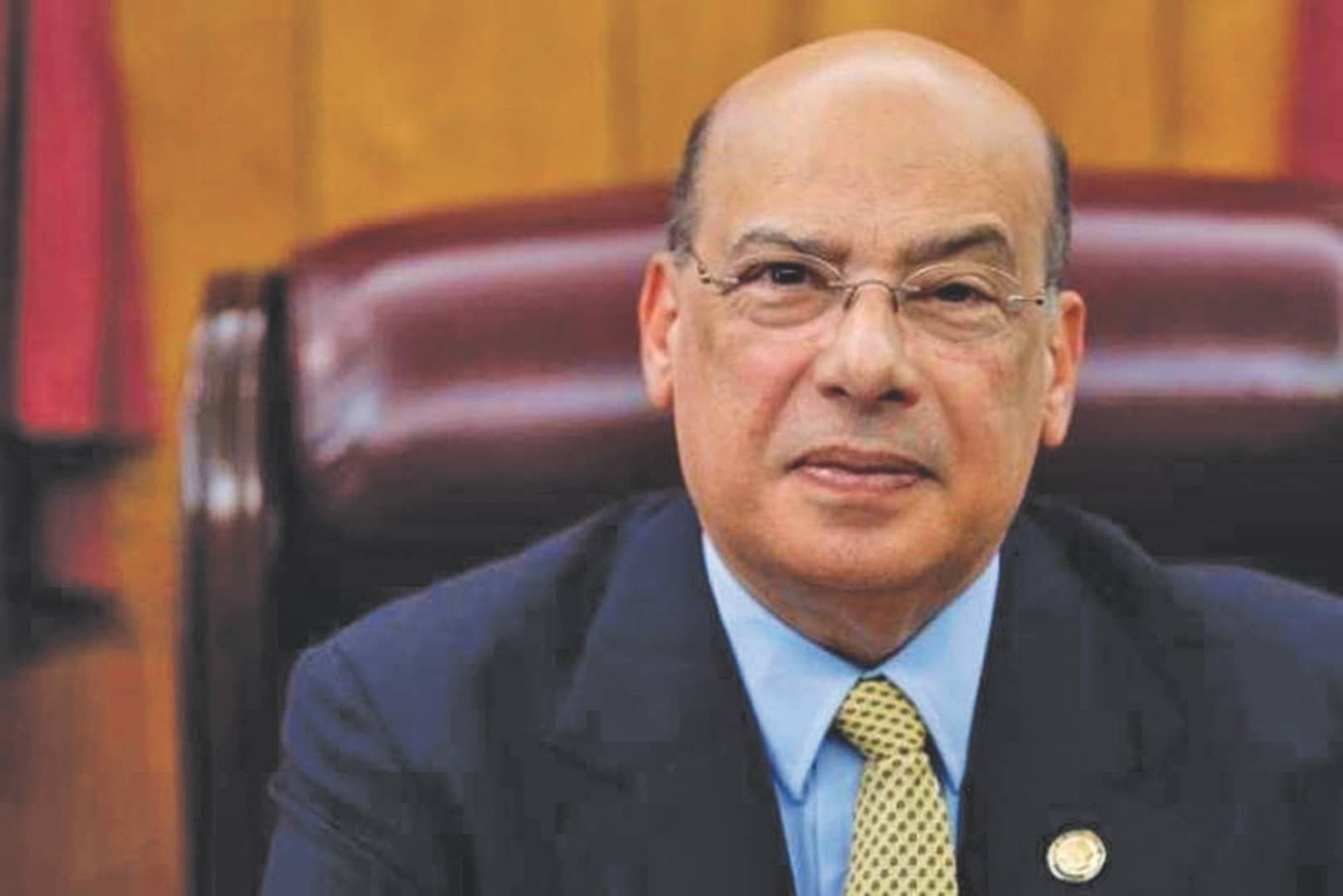
By Sir Ronald Sanders
(The writer is Ambassador of Antigua and Barbuda to the United States and the Organization of American States. He is also a Senior Fellow at the Institute of Commonwealth Studies at the University of London and at Massey College in the University of Toronto. The views expressed are entirely his own)
The untidy and muddled way in which Canadian banks are withdrawing from the countries of the Commonwealth Caribbean is a direct result of insufficient attention being paid by governments to the terms of their entry at the time. Commonwealth Caribbean countries are those that were former colonies, or are still territories of, the United Kingdom (UK).
It is reported that: “Beginning in 1955, a former governor of the Bank of Canada and director of the Royal Bank of Canada, Graham Towers, along with a representative from the Ministry of Finance, helped write the Bank of Jamaica law of 1960 and that country’s Banking Law of 1960. These laws, which became the model for the rest of the newly independent English Caribbean, pleased Canadian banks”.
Quite extraordinarily, the major Canadian banks that established in the Commonwealth Caribbean did so on a letter of comfort; they did not invest a cent in capital, other than what was needed to satisfy the start-up of operations. From the time they opened their doors to now when they are closing them, Canadian banks were mere custodians of the assets of Caribbean people or people benefitting from doing business in the Caribbean. The only things they owned were the few buildings that they bought or built, and the large profits they made for many decades – all of which were repatriated to Canada for the benefit of their shareholders and the Canadian economy.
What they are selling today is the custody of the assets of Caribbean depositors and viable loans within Caribbean jurisdictions that give a good return.
Over the years, the profits from their Caribbean operations have amounted to thousands of millions of dollars. This is why in the sudden haste of Canadian banks to depart the Caribbean, regional governments should be careful not to repeat the mistakes of their predecessor governments in the late 1950s and 1960s that allowed the Canadian banks to formulate terms.
There are a few facts that should be borne in mind. First, up until their secretive rush to depart the region, Canadian banks controlled more than 60% of the Caribbean’s banking sector. This means that they conducted more than 60% of the region’s transactions. In this scenario, if the region is accused of involvement in money laundering and tax evasion, it seems logical that Canadian banks in the region were involved in some measure of that activity. This is borne out by Alain Deneault in a 2015 book titled, “Canada: A New Tax Haven: How the Country That Shaped Caribbean Tax Havens Is Becoming One Itself”. In the book, Deneault writes: “Beginning in the 1950s, at the instigation of Canadian financiers, lawyers, and policymakers, these jurisdictions changed to become some of the world’s most frighteningly accommodating jurisdictions. In 1955, a former governor of the Bank of Canada most probably helped make Jamaica into a reduced-taxation country. In the 1960s, as the Bahamas were becoming a tax haven characterized by impenetrable bank secrecy, the Bahamian finance minister was a member of the board of administrators of the Royal Bank of Canada (RBC). A Calgary lawyer and former Conservative Party honcho drew up the clauses that enabled the Cayman Islands to become an opaque offshore jurisdiction.”
In this sense, the Canadian banks may have reason to consider their own contribution to the tainting of the Caribbean as a tax haven and the consequences that regional countries now face in terms of the withdrawal of correspondent banking relations (CBRs) that are vital to their economies and the wellbeing of their people.
That brings us to a second consideration surrounding the sale of the operations of the Canadian banks in Caribbean jurisdictions. It is related directly to maintaining CBRs. Correspondent banks in the US are reluctant to provide CBRs to respondent banks in Caribbean jurisdictions that have assets of less than US1 Billion. That restriction applies to most indigenous banks. It is why Antigua and Barbuda’s Prime Minister Gaston Browne insisted that any sale of their operations by Canadian banks must be made to indigenous entities. This policy was designed to ensure that local banks could achieve the asset base of US$1 Billion that would make CBRs more secure. When a consortium of indigenous banks purchase the operations of Royal Bank of Canada (RBC), formally announced on December 12, each of them will be in a better position than before, and the Eastern Caribbean economies would be more confident of their capacity to continue to participate in global trade and finance. The acquiring consortium of indigenous banks are: 1st National Bank of St. Lucia, Antigua Commercial Bank Ltd., National Bank of Dominica Ltd., the Bank of Montserrat and Bank of Nevis Ltd.
In this regard, recognition is due to Antigua and Barbuda’s Prime Minister, Gaston Browne, for not agreeing to the sale of Bank of Nova Scotia (BNS) to other than indigenous banks in his country. Had he not done so, RBC may not have decided that the wise course was to sell only to the indigenous banks.
As it stands, the sale of BNS operations in jurisdictions in the Eastern Caribbean, other than Antigua and Barbuda, is a lost opportunity. Had governments provided the overall economic guidance, indigenous banks could have acquired over US$2 billion of the assets being held by BNS for approximately US$50 million, resulting in stronger indigenous banks; each better placed to secure CBRs and each more financially secure. What is more, the assets and the generated profits would have benefitted a faster rate of social and economic development of Eastern Caribbean countries. As it now stands, those profits will now flow to Republic Financial Holdings (RFH) and shareholders in Trinidad and Tobago, when they could have been kept in the Eastern Caribbean.
No quarrel with RFH, it made a business decision in its own interest and that is what businesses do. It is a shame that a similar good business decision was not made by the Eastern Caribbean authorities, except Antigua and Barbuda.
Responses and previous commentaries: www.sirronaldsanders.com
Advertise with the mоѕt vіѕіtеd nеwѕ ѕіtе іn Antigua!
We offer fully customizable and flexible digital marketing packages.
Contact us at [email protected]

















Pure crap. NO INDIGENOUS BANK IN ANTIUGA ALONE CAN PURCHASE ANY OF THE FOREIGN BANK. HENCE A CONSORTIUM. Gaston touting still amounts to nothing!.
Notes From A Native Son Of The Rock! “The misfortune of man is that he was once a child.” ― Frantz Fanon!
This is the type of spookism, confusion, and superstition which a “neglected education” wreaks on a society!
“Many men, many, many, many, many men. Wish death ‘pon me. Lord, I don’t cry no more. Don’t look to the sky no more. Have mercy on me.” – 50 Cent!
Boss have you missed the news that ACB will shortly purchase RBC here? Come on man stop counting your own out
Notes From A Native Son Of The Rock! “The Afrocentric paradigm is a revolutionary shift in thinking proposed as a constructural adjustment to black disorientation, decenteredness, and lack of agency.” Dr. Molefi Asante!
This type of clarity and analysis is what’s missing had Gaston Browne and Ron Sanders not been torpedoed by Elizabeth II, Cameron, Scotland, the British Tabloid DT and the dislocated English speaking CARICOM Governments at CHOGM 2015!
Hopefully every schoolchild on the Rock and as wide and far as the other OECS and CARICOM will be exposed to this well researched short Primer!
Nuff Said!
Give Praise and Thanks to The Ambassador, Plenipotentiary, Academic, Writer and Humanist for such brilliant and succinct use of etymology to bring clarity by exposing the dislocations and disorientations in the formulation of political and economic colonial laws that show how the People of African Descent resident on these Caribbean SIDS have been shut out of the Global Banking System and Development!
“The people come to understand that wealth is not the fruit of labour but the result of organised, protected robbery. Rich people are no longer respectable people; they are nothing more than flesh eating animals, jackals and vultures which wallow in the people’s blood.” ― Frantz Fanon, The Wretched of the Earth!
I would imagine you are pretty impressed with your commentary.
You do realize it is complete dribble.
Why be petty? It is well known the Sir Ron has a history of offering real solutions. Fact is he would have been in a better position to help this region if we did not have this way of enjoying shooting ourselves in the foot. Just the other day (2016), the former IMF head Christine Lagarde, was found guilty of negligence in her handling of a 429 million usd payment. She served no jail time, left the IMF 3 years later, and is now the President of the European Central Bank
It is not well known that Saunders has a history of offering real solutions. If that were so we would have the WTO payment and Canadian visa waiver intact. What has Saunders contributed to Antigua, please name one of his accomplishments.
Notes From A Native Son Of The Rock! Ah Mi Gud Fren! “The Afrocentrist would look to the questions of location, control of the hegemonic global economy, marginalization, and power positions as keys to understand the underdevelopment of African people.” – Dr. Molefi Asante!
Please return to your citadel and commiserate with Saunders and “other jumbies” as Ron Sanders, the Antigua and Barbuda Ambassador without peer, who’s “existence is like a bridge, poised between the water that birthed him and the earth that would bury him” continues to shine the light for Antigua and Barbuda!
“For the beloved should not allow me to turn my infantile fantasies into reality: On the contrary, he should help me to go beyond them.” ― Frantz Fanon, Black Skin, White Masks
Wow the internet of things! VOIP caused Cable & wireless to pull out of the region and now digital currency has caused Canadians banks to pullout.
Antigua…Best Country in the WORLD. Check out the following…:
1. Best Medical Facility in the OECS (MSJ)
2. Among the fastest growing economies in not only just the region, also the World
3. Tourism numbers breaking records
4. A&B has been on no blacklist unlike many of our regional counterparts
5. University of A&B
6. Best regulated CIP program in the OECS region (most transparent program)
7. Our HDI scores continue to increase during this administration tenure
8. Nation at the forefront for reparatory justice
9. Leading in the region when it comes to reducing the use of plastics.
10. 33 ranking in the rule of law report (2019), which places us ahead of your USA (50)
Yet you prefer to find some small issue to blow out of proportion to justify your need for the sky to be falling. Boss we live in a blessed though imperfect country
Same vicious cycle , nothing new under the sun #neocolonialism #exploitation
Comments are closed.